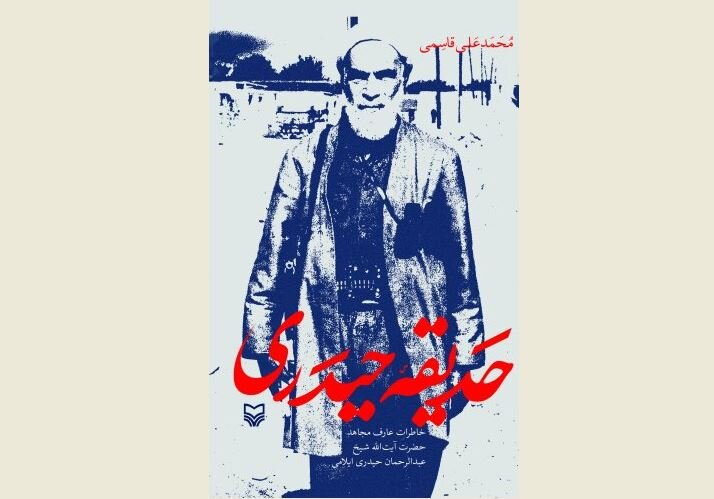“Hadigheh Heydari” and the story of the battle with the Ba'athist regime in Iraq

The book “Hadigheh Heydari” by Muhammad Ali Ghasemi, is the Ayatollah Sheikh Abdul Rahman Heydari’s memories that has been by Soore Mehr publication this year.
This book is a narration of a Mujahid mystic who had an effective presence in both the Islamic Revolution and the holy defense. According to the author, the life of Ayatollah Sheikh Abdul Rahman is vital for the history of our country in terms of politics, culture, and society, and in this book, all of these aspects are covered in a way which doesn’t bore the reader.
*Tell us more about Ayatollah Sheikh Abdul Rahman and his activities?
He was one of the prominent seminary students of Ilam province and before the revolution, he studied in the seminaries of Najaf, Ashraf, Samarra, and Karbala in the presence of the great masters of that time. In 1974, he started his political activities and got commissioned by Ayatollah Hakim to carry out cultural activities in the Baghdad region and became the Imam of Friday prayer of the Kurds of that region but after a while, the Iraqi security service arrests him and expels him from Iraq. So, he came back to Iran and went to the Qom province. He stayed in Qom with Ayatollah Golpayegani and Ayatollah Marashi Najafi, and later he got permission to teach there. and, in the end, he became one of the companions of Imam Khomeini before the victory of the Islamic Revolution.
* What was his role in the struggles before the revolution?
After the victory of the revolution, Imam Khomeini commanded him to go to Ilam as a representative, and due to his position, The SAVAK couldn’t arrest him.
First, he established the Alimah Baqir al-Uloom seminary to train young seminary students. In 1976, he took over the leadership of the political and revolutionary movements, and in 1978, he declared the Islamic Republic in Ilam province.
*What did he do after the victory of the Islamic Revolution?
He had an important role in forming the Basij force in Ilam and the safety of this city. He also did a lot of influential work during the war.
*Why do you think this book is important for today's audience?
There are effective and instructive points for today's generation in this book. I refer to only a brief memory of the time when many families were expelled from Iraq and came to Iran. At that moment, a little Arab girl named Ameneh asked him for help and said that she was a stranger there and she wasn’t feeling comfortable. She asked Ayatollah Heydari for harboring. So, he took her to his own home and told his family that this girl was also his daughter. She lived in Ayatollah Heydari’s house for a while until they figured out that Ameneh's uncle lives in Khorramabad, so he came to take Ameneh. A few years later, when Ameneh had grown up and started her own life, he came back to visits Ayatollah Heidari and told him that she owed him the family she now has.

Leave a Comment